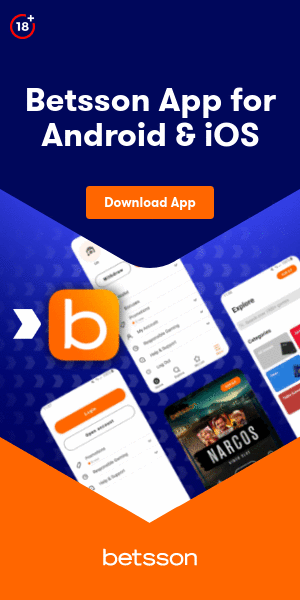South Africa is one of the leading gambling authorities on the African continent. Not only was it one of the first to introduce comprehensive gambling legislation for bettors, but it has also developed one of the broadest and most profitable iGaming sectors on the continent.
The National Gambling Amendment Act, introduced in 2008, helped many South African iGaming companies flourish. It mirrored many provisions of the landmark 2005 UK Gambling Act, which meant British gamers could play games online and allowed iGaming companies to develop their brands in the UK.
There are many countries throughout Africa where gambling is less prevalent or isn’t legal at all. In fact, Egypt and Nigeria – the only two African countries with bigger economies than South Africa – have far less access to iGaming facilities. Egypt has completely prohibited it, and Nigeria only has a handful of licensed casinos and a grey market for digital platforms. They have nowhere near the same structure and legislative foundation that South African gamblers enjoy.
This makes South Africa the largest gambling market in Africa. Depending on which economists or statistics you refer to, between 70 and 80% of South Africans gamble. This significant percentage puts the country right up there with some of the world’s most ardent gamblers.
Identifying global trends
Digital casino gaming has exploded in popularity for several reasons, but one key avenue crucial in understanding the broader context is the explosion in global competition. You only need to briefly examine the history of some of the world’s most prominent iGaming companies to see that they all have one thing in common – they identified trends earlier than the competition. They understood that the market was quickly pivoting toward digital dominance.
Many of the trends in South African iGaming have followed this pathway. While there are some nuances that we will delve into further, the overarching theme is that the internet has helped fuel competition and fuse together gambling communities, developers and platforms worldwide. As it has become such an intertwined community, many of the changes in South African iGaming reflect those more extensive changes in the wider gambling sector, particularly in larger economies like the United States and the United Kingdom.
You can see many successful components in the top global iGaming platforms exemplified in the most successful South African platforms. This goes beyond casinos or sportsbooks – affiliate platforms have become a key component of the sector through their brutally honest reviews of those operators. And that’s not an easy space to play in.
When you look at the most popular review sites like PlayCasino.co.za, they didn’t just look at the domestic South African market when creating their business strategy and advertising campaigns; they took aspects from some of the success stories in international markets and cleverly repackaged them for South African bettors.
Embracing mobile technological developments
It’s hard to believe that back in 2008, when South Africa first introduced their landmark gambling legislation, mobile casino gaming made up a tiny fraction of the overall global gambling industry. Although they are referred to several times in the legislation, mobile phones and the internet were not as widespread as they are today.
Mass adoption had yet to take hold in many areas of the gambling industry. Even in more prominent gambling countries like the United Kingdom, land-based casinos and sports betting operators are the two main ways that bettors place their wagers. Of course, this started to change quickly in the late 2000s and early 2010s.
When smartphones became devices we could use for our internet browsing, iGaming companies were rubbing their hands together, thinking of all of the possibilities on the horizon. In the early days, many of those who adopted and embraced smartphone technology were under the age of 45. But by the late 2010s, smartphones had become so abundant, with billions in circulation, that many over 55s in South Africa, the United Kingdom and the United States started to get with the times as well.
Mobile phones and tablets – gambling tools of choice
By the late 2010s, a large percentage of South Africa’s population had access to the internet via their smartphone, making it the dominant way to play. Sure, land-based casinos had their core market, which they still maintain. There will always be a significant minority of gamers who prefer the look, feel and atmosphere of land-based casinos. However, innovation will continue to rumble on as more people seek out iGaming platforms that continuously look for ways to appeal to a larger number of bettors.
In more recent years, this has been reflected in the growth of bigger-screened mobile devices. While laptops and PCs might have kickstarted the iGaming revolution all those years ago, and mobile phones helped to propel it into dizzying new heights, it feels like the pendulum may have swung back the other way, given the current boom in iPad and Android tablets as gambling tools of choice.
Aside from the lottery, slot games are the most popular iGaming game in South Africa. Many slot companies have entered a golden period since the mid-2010s by exponentially increasing the quality of their graphic design, designing them specifically for tablets and wider screens, as opposed to smaller smartphone devices. While they work just fine on smartphone devices, you can often get a much better picture and observe the finer details on tablet devices – and over the last five years, this has undoubtedly been the most significant change in South African iGaming.
Marketing strategy changes in South African iGaming
Again, consider the foundation of the internet and smartphones becoming integral to our everyday existence. In that case, iGaming companies understand that the digital advertising and marketing space is also changing. South African iGaming companies have focused their marketing campaigns on social media channels, especially in recent years, to bring in more bettors.
Although the switch to mobile gaming has been ongoing for quite some time, many iGaming companies were using traditional advertising methods. However, with billions of people accessing social media sites daily, including tens of millions of South Africans, there’s been a massive switch in the advertising campaigns that iGaming companies have deployed.
With many iGaming companies on a global scale identifying this switch, the prominent South African iGaming platforms have also been busy tailoring these changes to suit their multibillion-dollar domestic market. Marketing strategies have gone from large, targeted campaigns at set demographics to using the power of welcome bonuses and other promotions to target bettors in smaller, quickfire ads on the likes of YouTube and Instagram.
More effective safe gambling rhetoric
Using techniques and algorithms similar to marketing strategies, responsible gambling companies can broadcast their services to bettors who may be experiencing a gambling issue.
You must seek out assistance with these services if you are in a position where you feel you are exceeding preset time and deposit limits, or if gambling is causing you emotional or personal distress. Other red flags include viewing gambling as a means of income or spending money earmarked for essential household bills like rent, food and other necessities. Reach out to a problem gambling service if you or anybody you know starts experiencing these red flags.
Does any country have a unique domestic iGaming market?
In 2024, no country has an iGaming market that doesn’t feature significant international influence. By its whole design, iGaming is a global market. Game designers from all over the world use the internet to continually bounce ideas off each other and combine their expertise to drive innovation. Not only do South African iGaming companies have to compete against each other, but they must also incorporate global trends and changes to ensure they’re not left behind.
Although iGaming companies based in the UK or US might have a larger scope for profit and growth, the principles and foundation of their iGaming business remain the same as those in South Africa. Ultimately, the purpose of any iGaming company is to establish a name for itself in the market, and this belief transcends borders.
Final thoughts
In recent years, the primary changes that have come into South African mobile gaming are primarily the quality of tablet and smartphone casino designs and changes to marketing campaigns to prioritize prevalent social media sites.
While there might be changes in the popularity of certain sports betting markets or the popularity of certain casino games, the general framework of iGaming companies, especially successful ones, tends to be oriented toward a global trend or taste. Although many South African companies offer localized gambling services, they take many of their cues from the most prominent names in the international field.
The truth is that the changes in iGaming mirror those that have taken place across the continent, the US and the UK. No significant changes have taken place that haven’t been integrated globally – such is the whole nature of iGaming.
As the industry as a whole changes at breakneck speed and becomes a truly 24/7 market, betting trends and behaviors among South Africans have all come as a result of broader market influences. It is likely to remain this way for the next decade as the industry’s trajectory continues to reach new heights and profit levels.










